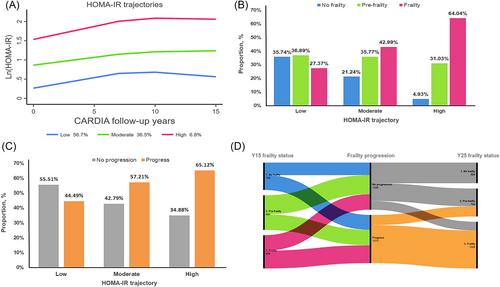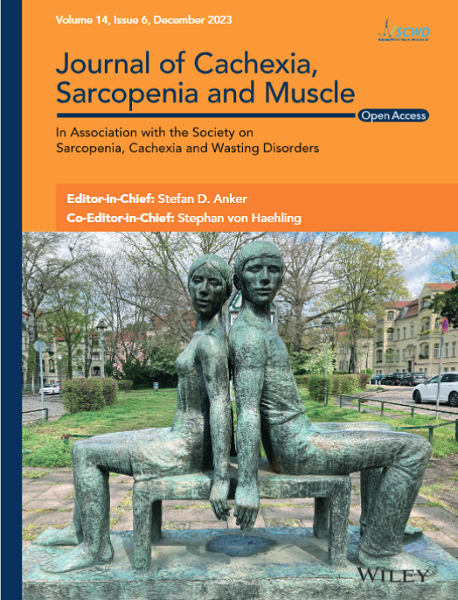Insulin resistance and diabetes are associated with an increased risk of frailty, and frailty is associated with cardiovascular disease and premature mortality. We aim to investigate the impact of long-term insulin resistance trajectories on future frailty and cardiovascular risk among young adults.
In total, 3168 participants with a 30-year follow-up period. The baseline period covered the first 15 years as the exposure period. Insulin resistance was determined using the homeostasis model assessment for insulin resistance (HOMA-IR), and three trajectories (low, moderate, and high) were constructed. The subsequent 15 years constituted the event accrual period. Frailty was assessed using a deficit accumulation mode, and cardiovascular outcomes were obtained from the 15-year event accrual period.
The mean age of all 3168 participants was 41.0 (37.0–43.0) years, with 1750 (55.2%) being women. Participants in the high level of insulin resistance trajectory had an increased prevalence of frailty (OR: 1.55, 95% CI: 1.05–2.30, P = 0.028). Although no statistically significant associations were observed after full adjustment, single-factor analysis indicated association between the moderate and high trajectories and frailty progression. Additionally, participants with high level of insulin resistance trajectory were associated with an increased risk of cardiovascular disease, coronary heart disease, and stroke. A notable correlation between HOMA-IR trajectory and cardiovascular diseases was still discernible within the subgroup where the frailty index ≥0.12 (HR: 2.12, 95% CI: 1.17–3.83, P = 0.013) (P for interaction >0.05).
Long-term high level of insulin resistance is associated with high prevalence of frailty, and an increased risk of cardiovascular events. Emphasizing the importance of early prevention and intervention for abnormal glucose metabolism in young adults to prevent frailty and cardiovascular disease.



